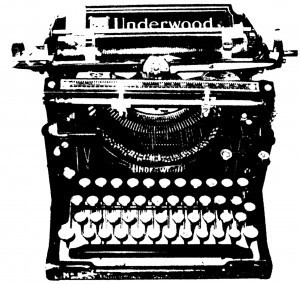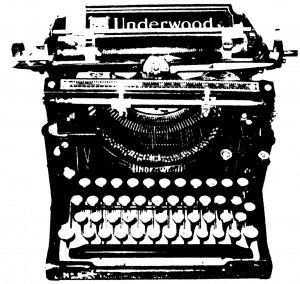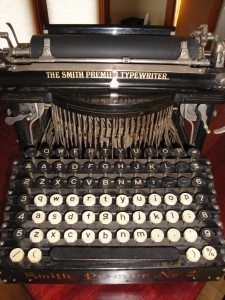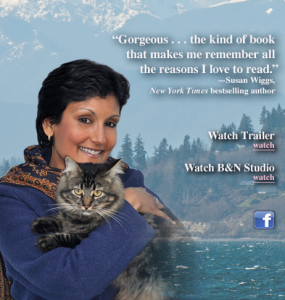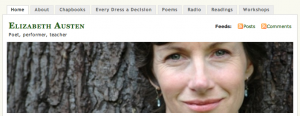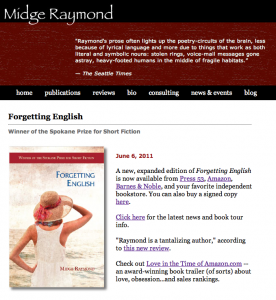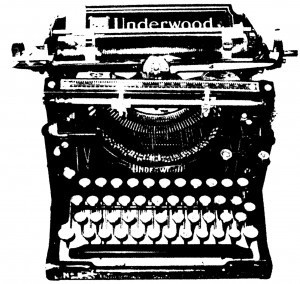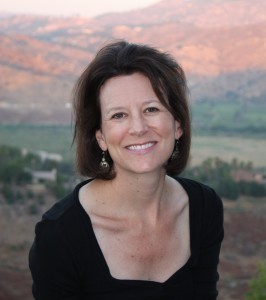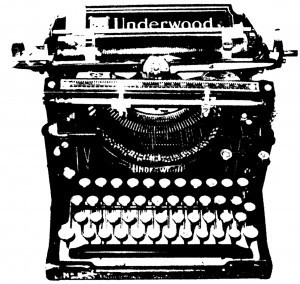Midge Raymond's Blog, page 46
June 29, 2011
Book Promo 101: The bookstore reading
You've may have already read my post on planning your book tour — and now, you're ready to show up at the bookstore, library, salon, or whichever venue will be your first. Time for a few tips.
Reading to an audience is something you learn how to do well over time, through experience and mistakes, as the poet Kelli Russell Agodon says so well in . One of the most surprising things for me, when I first began doing readings for Forgetting English, was that I found myself wishing I'd read each and every story aloud one more time before seeing it into print — because once I began reading these stories aloud, I realized that I'd have changed certain words here and there so that they'd flow as well off the tongue as they seemed to on the page. So this leads to my first of many tips for having a successful bookstore reading:
- Think ahead — way ahead. When you're in the process of publication, think ahead to how your work will sound when you read it aloud, and make the changes you need to make. That way, when you're ready to plan what to read, you'll know that it will sound good, and all you'll need to do is practice. Which brings me to my next tip…
- Practice. You may think you know your work inside and out, but reading is so different from writing. And you'll also need to choose what to read, often from several hundred pages (see below for how to choose). Practice reading your selection aloud as many times as you need to. Read for a few people to get feedback on your pacing, emphasis, and delivery. Some writers use audio or video to gauge how they're doing — also a great way to practice. And if you live in a city that offers open-mic events, go to them and read — and do this as often as you can. The very best way to get comfortable in front of an audience it to practice in front of an audience.
- When choosing what to read, less is more. When Forgetting English first came out and I was doing a lot of readings, I experimented: Once, I read an entire story (about 40 minutes of reading); other times, I'd read for ten minutes from one story; and still other times, I'd read from three different stories for five minutes each. Sometimes the best way to learn what works is to give it a try — and, having done that, I can definitely recommend reading less and chatting with readers more. While my 40-minute reading was, fortunately, well received (if you do read for that long, be sure you do it in front of a friendly crowd who'll happily sit through it and not throw things at you, and give them a head's-up about the duration of the reading so they won't get restless), I've done a long reading only once, and I doubt I'll read for that long again. For one, it's easier to read shorter passages; two, it doesn't risk tiring an audience; and three, it offers more time to chat about the book and to take questions. Remember that readers are there to get a taste of the book, but they're also there to get what they can't get from the book itself: a glimpse of who you are as a writer.
- Support the venue. If you're reading in an indie bookstore, support it with a purchase, whether it's a book or a few greeting cards or a bar of Theo Chocolate. If you're in a library, ask if you can donate a copy of your book for their collection. Always find a way to give back.
- Offer something extra to readers. Bring bookmarks or postcards, buttons or pens — any little something to offer guests at your event. It's nice to offer little extras as thanks for supporting your book — and even if they don't purchase the book but leave with a bookmark, they'll be reminded of it and might be inspired to buy it later.
- Bring everything you might need. From water to reading glasses to tissues to cough drops — whatever you might need, bring it. Keep a list of things, just in case. It's amazing what you forget … I've read without water (challenging) and without reading glasses (doubly challenging), and I once forgot to bring a copy of my own book, so I had to borrow one from the bookstore (embarrassing). There is no such thing as being too well prepared.
- Bring extra books. I always bring 5-10 extra copies of Forgetting English along to a reading — and while this may seem redundant, it's far better to lug them along than to lose these extra sales and readers. Bookstores often under-order, and having been at bookstores that have sold out and needed my copies, I'm always glad to have them available. Granted, my book is slender and in paperback, so this is easy … but even if your book is a heavy hardcover, it's a good idea to have at least a couple of extras. If you do find yourself in a situation in which you leave readers without books, you can get their emails and follow up yourself with a signed copy, which they'll appreciate and remember.
- Speaking of getting emails…develop a mailing list. Pass around a sign-up sheet for email updates to anyone who wants to know where you'll be next or to hear about your next project.
- Be ready for anything. I keep my events low-key on purpose — no PowerPoint, nothing even remotely high-tech — so I never worry about the inevitable broken projectors or other possible malfunctions. But if you do need to bring or use equipment other than yourself and your book, always have fallback solutions, just in case.
- Talk to readers. Don't simply read but engage. Open your reading by thanking everyone for being there; say something nice about the city you're visiting. Tell them what you're about to read, why you chose it. Then, after your reading, invite questions. If no one asks anything at first (don't worry – they all have questions; they're just shy), simply jump right in yourself by saying, "One question I get a lot is…" and answer it. This will open up the dialogue.
- Learn from — and celebrate — your experience. On her blog, The Alchemist's Kitchen, poet Susan Rich writes about the aftermath of the author reading: how to know whether you've succeeded, taking a look at what's important to remember, and what's important to let go. If you're a multi-genre writer, you'll also enjoy her post on reading poetry v. reading prose.

June 27, 2011
Weekly Writing: Perception
The writers and travelers who joined me for my recent workshop enjoyed this writing prompt, so I thought I'd share the fun. It's a two-part exercise, the second of which is usually the most fun — and the most surprising.
1. Think of someone you saw while traveling. Write a description of this person.
2. Next, write a description of yourself from this person's POV.
Enjoy!

June 23, 2011
A writing space of one's own (almost)
Today I am honored to have a guest post on the fabulous Diary of an Eccentric book blog, in which I talk about my writing space (as you'll see in the photo, it's not always entirely my own). And, better yet, we're offering a free copy of Forgetting English!
And while you're visiting, see Anna's lovely review of Forgetting English.
Hope you'll join us!

June 19, 2011
Weekly Writing: Something lost, something found
For this prompt, consider physical objects lost or found — a watch, an earring, a wallet — but feel free to go beyond to such things as the loss of a job or innocence, the finding of your calling or true love.
Write about something you lost.
Write about something you found.

June 15, 2011
Book Promo 101: The book tour
For the past couple of months, I've been setting up events for the new release of Forgetting English, and probably the best thing I've learned, not only from this time around but from the events I did when the book was first released in 2009, is that The Book Tour comes in so many shapes and forms. And the most important thing for any author to know is which type of tour will work best, for both the writer and the book.
The old days of publisher-sponsored, multi-city book tours are, for the most part, long gone. These days, authors must plan, pay for, and promote their own book tours — which is no small task. And for writers who don't have a background in publishing, publicity, or marketing, it can seem even more intimidating — I've heard countless authors say that their book promotion turned out to be even more challenging than writing the book.
But the challenges are well worth it, as the rewards can be great. As you keep in mind the nature of your book, your schedule, and your budget, here are a few tips to help you plan a tour that will best fit your needs:
- Team up with a fellow writer. In my upcoming tour, I'm teaming up for many events with my friend and colleague Wendy Call, author of No Word for Welcome . Because our books have similar themes (both are about foreign locales, though mine is fiction and Wendy's is nonfiction), we thought it would be great to offer joint events, with something for all readers, and the reception has been very positive. (You can check out our schedule here.) Best of all, we share the workload and the fun, and we commiserate over the not-so-fun stuff. I'm also teaming up for a couple of presentations with my husband, John Yunker, author and co-founder of Ashland Creek Press. So if your book is a good fit with another writer's, joint events are a great way to broaden your audience.
. Because our books have similar themes (both are about foreign locales, though mine is fiction and Wendy's is nonfiction), we thought it would be great to offer joint events, with something for all readers, and the reception has been very positive. (You can check out our schedule here.) Best of all, we share the workload and the fun, and we commiserate over the not-so-fun stuff. I'm also teaming up for a couple of presentations with my husband, John Yunker, author and co-founder of Ashland Creek Press. So if your book is a good fit with another writer's, joint events are a great way to broaden your audience.
- Think outside the bookstore. Certain times of year (such as summer in the Pacific Northwest) can be impossible for scheduling bookstore events. And sometimes, no matter what the time of year, a bookstore will be booked already, or your schedules won't align. So think beyond the bookstore — most libraries are very open to author events, particularly if there's an educational component. Also think of community centers or literary centers such as Grub Street, Richard Hugo House, or San Diego Writers Ink.
- Offer a little something more. Unless you're a writer whose mere presence in a bookstore will guarantee a line out the door, think about offering a little more than a traditional reading/signing. You want the event to be a win-win (so you'll be invited back when you publish your next book), so think beyond your book to what else you can offer. Often when I do an event for Forgetting English, I offer a travel-writing workshop, which brings in readers, writers, and travelers. So even if no one's ever heard of me or my writing (which is most people), those who love to travel or write will show up to learn something … and one of the things they learn is what my book is all about. Wendy and I have mini-workshops planned during our New England book tour this fall, and John and I will be talking about publishing and Ashland Creek Press. Even if an event isn't specifically about your book, you're giving participants an opportunity to get to know you, which in turn will build interest in your work.
- Get creative. Again, a book tour needn't be limited to bookstores or libraries. In this New York Times article, Stephen Elliott writes about his D.I.Y. book tour for The Adderall Diaries, in which he bravely embarks on a different kind of book tour. Not wanting to "travel thousands of miles to read to 10 people, sell four books, then spend the night in a cheap hotel room before flying home," Elliott decided to let his readers host his events. His salon-style events would take place in readers' homes, have at least 20 attendees, and Elliott would sleep on the host's couch. Check out the article for details, including what the author learned in the process.
- Host (or ask someone to host) a literary salon. This is a version of what Stephen Elliott did, but with friends, not strangers. Literary salons are a great way to find new readers and talk about your book in a more private setting. Ask a friend (even better if it's someone in another city/state, where you'll be reaching out to new readers) to host a salon for you at his/her home. Bring copies of the book to sell; provide whatever food/wine/etc. you'd like at the event. Then simply plan a casual gathering around your book, which might include a brief reading, discussion, Q&A, etc.
- Learn from each event, and from others. Susan Rich returned from her book tour for The Alchemist's Kitchen with new wisdom and some great tips, which she offers in this blog post.
with new wisdom and some great tips, which she offers in this blog post.
- If you don't have the time or budget to do a traditional book tour, try a Virtual Book Tour. You do many of the same things — can create buzz for your book, find new readers, and chat about your book — on a Virtual Book Tour. Keep in mind that, while virtual, this type of book tour takes a lot of planning: you need to connect with host bloggers, come up with original topics to write about, and promote your tour. See my original post on virtual book tours, and search virtual book tour on this blog for examples of where my tour took me.
- Plan in advance! Bookstores usually schedule events 4-6 months in advance, and libraries schedule 3-5 months in advance. There's always a chance you can get in at a later date, especially if you're a local author, but I definitely recommend advance planning, especially if you have certain venues in mind.
- Promote, promote, promote. Once your events are set up, the real work begins! Again, a happy experience for all is when you have a nice crowd, and when you sell books. Use social media to promote your events; create postcards, bookmarks, and/or flyers to offer to the venue so that they can promote it as well. List your events on your web site as well as on BookTour.com (which will automatically post them on your Amazon author page). This excellent post by Randy Susan Meyers offers advice for how to be self-promote with dignity.
- Enjoy, enjoy, enjoy. Remember that this is fun. (Really, it is.) The process of setting up all these events is exhilarating yet exhausting — and running around to all of them can be even more so. So this is when it's important to remember why you're doing it all: You've published your book. You're getting it out there in the world. And you're meeting your readers. For a writer, what could be better than that?
- Give thanks to all. Don't forget to thank everyone who made your tour possible, from the independent bookstores to your salon hosts to the readers who showed up to support your book. And hold on to this spirit of gratitude — it'll make your entire book tour lots of fun, even in the challenging moments.

June 13, 2011
Weekly Writing: Sightless writing
This week's writing prompt is inspired by the newest addition to my typewriter collection:
… as well as by Harold Taw, author of the fabulous novel Adventures of the Karaoke King . When I showed off this photo on Facebook, I mentioned with amazement that back in the late 1800s and early 1900s, when this typewriter was new, those who used it couldn't see the paper on which they were typing. And then Harold pointed out that the idea of not seeing what you're typing (that is, being unable to edit yourself) sounded rather liberating, and I realized that he's absolutely right. As an obsessive self-editor, I was inspired to give it a try myself — and to encourage you to try it, too. So, here's this week's exercise (by the way, I really enjoyed it, even though my pages looked as if the cat had written them):
. When I showed off this photo on Facebook, I mentioned with amazement that back in the late 1800s and early 1900s, when this typewriter was new, those who used it couldn't see the paper on which they were typing. And then Harold pointed out that the idea of not seeing what you're typing (that is, being unable to edit yourself) sounded rather liberating, and I realized that he's absolutely right. As an obsessive self-editor, I was inspired to give it a try myself — and to encourage you to try it, too. So, here's this week's exercise (by the way, I really enjoyed it, even though my pages looked as if the cat had written them):
Turn off your computer monitor, or put on a blindfold (whatever works) and write. If you need some help getting started, use one of the prompts below … but the important thing is not to look at what you're writing and not to edit yourself. Just type away.
Prompts:
- Write "I remember" and freewrite from there.
- Choose an object in the room and write about it.
- Write about something that happened to you yesterday.

June 8, 2011
Book Promo 101: Creating an author web site
As you're probably well aware, web site is essential for authors. What you may not realize is that it needn't be expensive or high-end. It's great to have a fabulous web site, of course, but many of us don't have either the technical knowledge or the budget — and when it comes down to it, you simply need to have an online presence. You need a place where readers, potential reviewers or interviewers, and anyone else interested in your book can find and contact you.
A question I hear often from not-yet-published writers is: "Do I need a web site if I don't have a book?" And there are a couple of answers to this question, depending on the writer and his/her goals. For one, if you have a book in the works with every intention of publishing it (i.e., you have a contract or plan to self-publish), you might go ahead and start planning a web site. And "planning" can mean anything from surfing around to see what author sites you like best to interviewing web designers. But if you don't have a completed book just yet, your time might be better spent finishing the book than creating a web site. For now, anyway. (Trust me, writing the next book is even harder when you have a web site to procrastinate with.) There's really no downside to having an author web site at any time, but if you don't have a book to sell or events to list, there's no huge hurry to get it up there, either.
However, even if you don't have a book yet, I would recommend that you start a blog. This will give you an online presence and help you start building your audience and that "platform" that publishers like so much. And then, you can add your blog to your web site when you're ready to make that leap. (See Book Promo 101: Creating a successful blog for more details and for tips on blogging.)
So, how to go about creating a web site? There are a million ways to do it, but I think these three tips are a good start.
- First, find web sites you like. You'll want your own site to emulate what you like about your favorite author sites, whether it's the bio page or the navigation bar.
- Second, figure out how much time and money you've got to work with. A web site needn't be flashy (in fact, the too-flashy sites, with bright colors or lots of animation, can actually irritate visitors) — it only needs to be pleasing to the eye and easy to navigate.
- Third, define your goals as a writer and how your web site will serve these goals. If you're on your sixth book and are ready to step into high gear to brand yourself as a writer, you'll have a lot of content to manage and you might want outside advice and a professional designer. If you're about to publish your first book, you may want a simpler site that focuses on your book and your bio.
Here are a couple of examples from two of my writer friends — both wonderful and very different writers, with successful and very different web sites.
Anjali Banerjee is the author of eight books, for both adults and young readers, and she recently launched a new web site to help build up her brand as an author. Here's a snapshot of her home page:
Anjali had her web site professionally designed by Authorbytes (if you ever see an author site you love, look for the designer credit on the home page), and her site is comprehensive, visually lovely, and user-friendly.
Elizabeth Austen is a poet and the author of a new book of poetry, two chapbooks, and a CD audio recording of her work. Her web site is through WordPress, which offers free blogging software with templates that allow you to create anything from a simple blog to a gorgeous web site like Elizabeth's. Here is a snippet of her home page:
Elizabeth's site is elegant, easy to use, and, like Anjali's, it contains everything an author site needs. Elizabeth wisely uses a lot of photos in her blog posts, which keeps it visually engaging.
And I am somewhere in between … I have a domain name, no budget, and a techy husband who is not only very talented but also very patient. He built me a web site I love (and as thanks, I bought him many beers). Here's a glimpse of my own home page:
So whatever your style or budget, with a little research and effort, you'll be able to create the web site that's perfect for your needs. And whichever route you take, keep in mind that your web site should have these essentials:
- a home page, updated with the latest news. Because I don't always have breaking news, I update the date on my web site so that visitors know I'm still alive, still writing, and still doing events and classes.
- a book or publications page. Because Forgetting English contains only ten of the dozens of stories I've published, I've listed these other publications on my publications page, under the book. This is nice for readers who may want to know more; also, it makes me feel very prolific.
- your bio, as you like it. Some authors write long bios that include their childhood forays into writing; others are short and to the point. Go with what you prefer — as long as it's not so short that it doesn't offer enough relevant information, or so long that no one will read it. Always include a good, professional photo (see Book Promo 101: The author photo).
- an excerpt from your book. This is essential not only for letting readers do a test drive, but it's also helpful for book bloggers who may decide to review your book based on a few pages. I've heard from several readers that the Forgetting English excerpt on my site was what made them take a chance on reading a story collection, sometimes for the first time.
- your reviews, blurbs and awards, of course! Show them off wherever you can (this is not the time to be modest), preferably on a dedicated page.
- a reading guide and/or book club info. My Forgetting English reading guide is on my blog, but I link to it on my book page so that readers can find it easily. Anjali has a book club form to handle book-club requests, along with a link to her reading guide.
- a link to your blog. My blog is listed on my navigation bar, but if your blog is separate from your web site, be sure to include an easy-to-find link.
- links to where readers can buy your book. This is a bit obvious, but it's amazing how often this info gets buried. These links should appear on your home page, or, if you have many books, in prominent spots on your individual book pages.
- links to your Facebook and/or Twitter pages. Use those perky little buttons, which make them easy to find, and put them in the upper right corner of every page of your web site, where visitors can't miss them.
- a contact form or email address. One of the main purposes of a web site is to connect with readers — as well as to be accessible to reviewers, reporters, etc. If you are worried about being inundated with spam, use a contact form. And do your best to respond to every (legitimate) email you receive.
- a way for readers to "subscribe" to hear about your news and events. If you haven't already, begin collecting a mailing list of readers — this way, you can send Evites or email newsletters to announce your events (use a service like Evite or Mail Chimp so that you don't get busted for spamming people). Note: never sign up people for news unless they've asked, and never share their information with anyone else. Here's the form that I use.
During the process of creating your web site, ask friends, fellow writers, and others for their feedback — it can be hard to take a step back and see your site objectively when you've been immersed in the process. Ask them whether they've found everything they need, whether anything was confusing or hard to find, and what might be missing.
And, finally, consider updating your site every few years — and particularly when you have a new book to promote. You don't want to redesign your web site so often that you lose your connection with readers, but a nice remodel keeps your site looking and feeling up-to-date. And keep in mind that it doesn't need to be a complete overhaul; even an occasional touch-up helps, such as a new photo.
Enjoy!

June 6, 2011
Weekly Writing: Close calls
Close calls in life give us a sense of who we are, whether it's a near accident or a more emotional close call, like awaiting a test result. And if you write fiction, writing about a character's close call offers a telling glimpse into his/her heart and mind as well as showing us how he or she might act in a given situation. Use this prompt however it best fits into what you're working on.
Write about a close call.

June 2, 2011
Book Promo 101: The author photo
I can still remember the days (long ago) when an author's photo on a book cover was optional. Sometimes there would be one, often in black-and-white; sometimes not. Now, however, in these days of "mediagenic" authors and digital imagery, the author photo is not an option. Which is a little stressful for those of us who have a disproportionate number of bad hair days or who may not love the camera.
But, as Jane Friedman writes in this blog post, every author needs a professional head shot. For one, if you hope to promote yourself and your book, you'll be asked for one — and, as Friedman points out, a photo can do wonders in terms of giving you credibility or establishing trust … or have the opposite effect.
Jane's post offers excellent tips for what you'll want in a photo, and I'll add a couple more:
- Stay within your budget, or you're sure to be even more stressed about it. There's nothing worse than spending money you don't have … but especially on a photo that will remind you of it at every turn. Many wonderful photographers out there know that we writers don't make a lot of money; find one that you can afford, then relax and enjoy the process.
- Invest in a good camera, and find someone who knows how to use it. It'll pay off in the end — for one, you can take photos on your book tour and at other events, which are always nice to have. Two, you can take a few good shots to offer in addition to your Official Author Photo. And, finally, you may even be able to use it for your Official Author Photo, especially if you don't like or can't afford the more formal studio shots. The photo I'm currently using was taken by my husband (who put himself through college in part by working as a photographer), and while it's not a professional studio shot, I like the more casual feel of it.
- Be yourself. Have you ever been to a reading where you couldn't identify the author because he/she looked so unlike the photo on the book cover? Beware of this. You'll want to look your best, but don't go too crazy with hair and makeup; most of all, you'll want to look like yourself.
- Interview photographers. This is a great idea no matter what, but especially if you're going to spend a lot of money. Once you've narrowed down your list based on the portfolios you like the best, schedule a meeting or a chat as well. Make sure the photographer knows exactly what you want and can achieve this for you. And make sure it's someone you feel comfortable with, or you won't be looking very relaxed in your photos.
- Check out my Q&A with Rosanne Olson, whose collection of portraits include many writers, for insider tips on how to take a great author photo.
Now all you have to do is smile.

May 31, 2011
Weekly Writing: What if?
Have you ever had one of those moments in which you wonder whether something might have turned out differently in your life? If you'd taken one job over another, if you'd missed the elevator on which you met the love of your life, if you'd reached the intersection two seconds later. And we can look back on these moments and feel either fortunate or unlucky. Today, reflect on a couple of those moments in your life, both the good and the wistful:
Write about a moment you wished had turned out differently.
Write about a moment you're grateful for.


